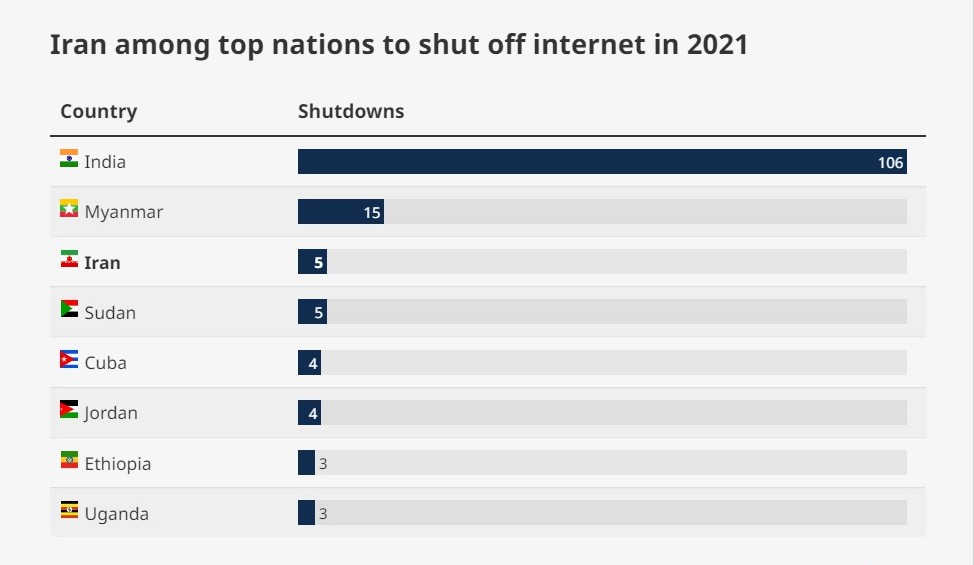- Finding Unshakable Power in a World That Wants to Pull Us ApartPosted 4 months ago
- What could a Donald Trump presidency mean for abortion rights?Posted 4 months ago
- Financial Empowerment: The Game-Changer for Women in Relationships and BeyondPosted 5 months ago
- Mental Health and Wellbeing Tips During and After PregnancyPosted 5 months ago
- Fall Renewal: Step outside your Comfort Zone & Experience Vibrant ChangePosted 6 months ago
- Women Entrepreneurs Need Support SystemsPosted 6 months ago
Iran protests at point of 'no return' - Nazanin Zaghari-Ratcliffe

By Emma Batha | Thomson Reuters Foundation Newsroom
What’s the context?
The death of 22-year-old Mahsa Amini in police custody has sparked “an explosion” of protest, said the British-Iranian
~ Zaghari-Ratcliffe says protests have broad support in Iran
~ British-Iranian aid worker was held in Iran for six years
~ Internet shutdowns are like solitary confinement, she says
LONDON – Protests engulfing Iran have reached a point of “no return” as demonstrators demand wide reforms beyond the end of mandatory hijab rules, said British-Iranian charity worker Nazanin Zaghari-Ratcliffe, who spent six years detained in Tehran.
She said the Islamic government’s crackdown on the popular revolt and shutdown of the internet showed it was scared of losing control.
“The anger has been building up for many, many years,” said Zaghari-Ratcliffe as demonstrations raged for a sixth week, triggered by the death in police custody of 22-year-old Mahsa Amini after she was detained for “inappropriate attire”.
“We can see a coming together for one single goal, and that is freedom. The protests are really, really powerful this time. I don’t think we’ve ever seen the unity we’re seeing now,” said Zaghari-Ratcliffe, describing Amini’s death as the “spark for an explosion”.
The protests have grown into one of the boldest challenges to the Islamic Republic since the 1979 revolution even if they do not appear close to toppling a government that has deployed its powerful security apparatus to quell the unrest.
“There is a generational shift which plays a massive role in the new movement,” said Zaghari-Ratcliffe, who works for the Thomson Reuters Foundation as a project manager, ahead of addressing the charity’s annual Trust Conference on Wednesday.
“This is the generation of social media and TikTok and the internet. They know more about the world and their rights than we did. They have a lot more courage than we did.”
The uprising has seen women tear off and burn their veils, with crowds calling for the downfall of Supreme Leader Ayatollah Ali Khamenei.
Thousands have been detained by security forces and more than 250 killed including children, according to rights groups.
 A police motorcycle burns during a protest over the death of Mahsa Amini, a woman who died after being arrested by the Islamic republic’s “morality police”, in Tehran, Iran September 19, 2022. WANA (West Asia News Agency) via REUTERS
A police motorcycle burns during a protest over the death of Mahsa Amini, a woman who died after being arrested by the Islamic republic’s “morality police”, in Tehran, Iran September 19, 2022. WANA (West Asia News Agency) via REUTERS
Solitary confinement
Zaghari-Ratcliffe, 43, was arrested at Tehran airport in 2016 after a trip to see her parents with her then 22-month-old daughter Gabriella.
She was separated from her daughter, whom she was still breastfeeding, and put in solitary confinement in a tiny windowless cell for nine months.
Zaghari-Ratcliffe was later convicted of plotting to overthrow the clerical establishment. She denied the charge and the case was widely seen as political.
She was freed in March after Britain repaid a historic debt to Tehran.
During her detention in Tehran’s Evin prison, Zaghari-Ratcliffe said she met many women who had received long jail terms for protesting against Iran’s mandatory hijab rule, including one 19-year-old sentenced to 24 years.
She said the current protests were a greater threat to the government than previous ones because they had attracted broader support, with labour unions now organising strikes which could potentially paralyse the economy.
“There’s no return from here,” she said. “This is not just about forced hijab any more. It’s also about the repressive rules they’ve been imposing on people for a very, very long time. It’s about unemployment, it’s about lifestyle, it’s about freedom to have access to information and the internet.”
Internet shutdowns
Iran has shut down the internet and blocked access to platforms such as Instagram and WhatsApp to stop people organising protests and sharing images with the outside world.
“Shutting down the internet is exactly what they are doing when they put people in solitary (confinement), only on a bigger scale,” said Zaghari-Ratcliffe.
 Table: Tom Finn / Thomson Reuters Foundation * Source: Access now
Table: Tom Finn / Thomson Reuters Foundation * Source: Access now
“They disconnect you from the outside world so the world doesn’t know what is happening to you and you can’t tell them. They want people to be scared and feel forgotten.”
She told the conference the international community had the means to counter surveillance and censorship by the government and urged action to ensure Iranians could access a “free flow of information”.
She also called for targeted sanctions on individuals, adding that Iran had learnt to live with general sanctions.
Earlier on Wednesday, the United States slapped sanctions on Iranian officials and entities involved in internet censorhip and the crackdown.
They included those overseeing Evin prison, which holds political prisoners, and where Washington says many protesters have been sent.
Her voice breaking, Zaghari-Ratcliffe read out the names of friends still locked up in Evin and asked the conference to remember Amini on the 40th day after her death, a traditional time of mourning in Iran.
“(Amini’s) death sparked rays of hope for all of us … in Iran, but also across the globe, that hopefully justice will prevail. Her name is a code for freedom,” she said.
Zaghari-Ratcliffe told Context that the protests made her proud to be an Iranian woman.
“It’s a shame for those of us living in enforced exile that we cannot be with the women on the streets, but we are certainly very proud,” she said.
Zaghari-Ratcliffe is settling back into London with her daughter and husband Richard, who ran a long campaign for her release including a three-week hunger strike while camped outside the Foreign and Commonwealth Office.
But she said she could not feel entirely free while friends were still in jail.
“Freedom is a very relative concept. I’m free in terms of coming out of prison and coming back home to my family in London. But I have left a part of me in Iran,” she said.
“I won’t be completely free until my country is free.”
(Reporting by Emma Batha; Editing by Sonia Elks and Katy Migiro.)
Context is powered by the Thomson Reuters Foundation Newsroom.
Our Standards: Thomson Reuters Trust Principles
Feature Slider Image: British-Iranian charity worker Nazanin Zaghari-Ratcliffe poses for a portrait at the Thomson Reuters Foundation’s annual Trust Conference in London, United Kingdom, October 26, 2022. Thomson Reuters Foundation/Ed Telling






